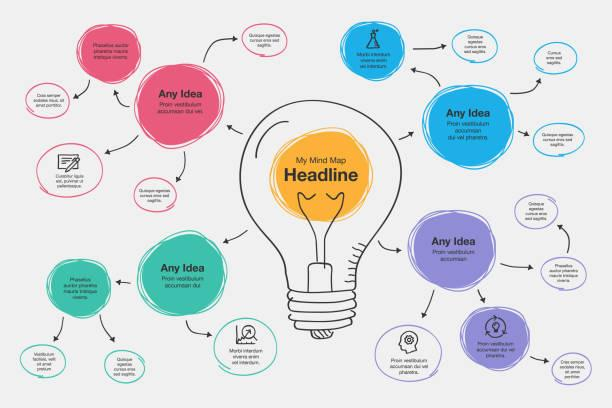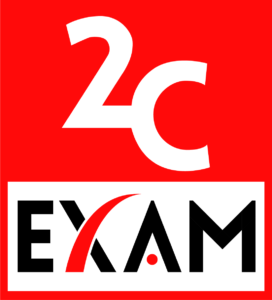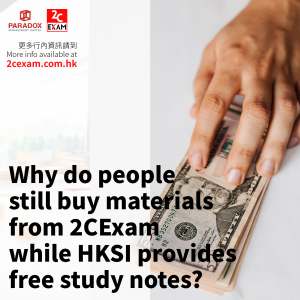Many people have passed the schooling stage but still need to take the exam occasionally. In fact, do not need not be afraid. Although your memory and learning perception may be worse than the days when you are young, you are more capable than you think you are! People mostly learn continuously, and usually learn a lot of new operations, rules, and methods of doing things during work. The information that a human brain can store is far more than you can imagine. The following will suggest some methods that adult students can take advantage of to optimize the efficiency of their exam revision.
Time Allocation
- Most people are already very tired after going to work. It is challenging for you to study for a long time. Therefore, when students plan the revision time, it is best not to put the off-work time into your plan, otherwise, the plan may be easily disrupted.
- You can make good use of traveling/ driving time to have Youtube courses made by 2CExam, instead of watching shaky text on the bumpy road.
Improving the Revision Efficiency
- Set reasonable goals for review. You don’t need to go through too much at one time, instead, you need to break down the scope. For example, don’t think that it is possible for you to study for 3 hours a day after getting off work from Monday to Friday, and then study for 9 hours a day on Saturday and Sunday. People need rest and have limited memory. After getting off work, you have to eat, take a bath, take a short break, etc. Once there is a delay or unexpected event, the whole plan will be disrupted, and you may never catch up with the progress. You can, for example, arrange a half an hour study time before going to bed from Monday to Friday. Reviewing for about 6 hours on Saturday starting from page 1 to page 30 and then start doing the questions. On Sunday, you also read 30 pages and do the questions. Spreading the review time over several weeks will make it easier to achieve your goals. A reasonable study plan can not only help arrange time but also increase your sense of success and have more confidence in taking the exam.
- Ask your colleagues/ friends/ online discussion boards. Teaching/ learning from each other is beneficial to increasing proficiency. When you ask others, you can learn the way of thinking of others, and when you teach others, you can rearrange and organize concepts in your mind, deepen your memory, and use them quickly in exams.

- Practicing mock exam questions is absolutely beneficial for revision! Usually, the top students of public examinations definitely practise past papers. This is because inputting concepts (absorption of concepts) does not necessarily mean having the ability to output them (application of concepts). Let’s say, you know a lot of English words but sometimes they just slip your mind when you need to use them. The purpose of doing more mock exams is not to expect the same question to appear again in the exam, but to distinguish the way that the exam question editor thinks so you understand what answers should be selected in the real exam. With more practice, you can come into contact with many different question types, master the skills of choosing the most suitable answer (not necessarily the only correct one), and improve your exam performance. In addition, the allocation of time for answering questions will be grasped more quickly. Especially for calculation questions, to evaluate whether you understand the recited formulas or not, you must actually substitute the scenario-based questions and calculate at least once by yourself.
- Make sure you understand the concept before moving on. You can master the knowledge and apply it quickly in the exam only when you understand the relations, principles, cause and impact, and the underlying meaning. Don’t be afraid to spend time comparing different and similar concepts graphically or understanding the causal relationship behind them. Do it! Since the memory of the systematized content can be much longer-lasting than the rote learning memory, it can be more easily retrieved.

- Don’t waste too much time on difficult exam questions. Many candidates lose a lot of points in their actual exams because they don’t want to waste every scoring opportunity so they waste a lot of time on the same question, or even use up time that is supposedly for the later questions. However, in this exam, the scores for each question are equal, so if you encounter a question you find it hard, choose a random answer, bookmark the question and then go back only after finishing the whole paper. With some luck, you may even find hints between the lines of other questions.

Question Answering Skills
- Look out for words with high certainties, such as “all”, “none”, “all”, “none”, “eliminate”, “exempt”, “only”, “solely”, “exclusive”, “wholly”, “merely”, “impossible”, “never”, etc. There are exceptions to many situations in the world, so many times there is no “only” or “all”.
- Use the substitution method. If students feel confused when taking the exam, they can substitute technical words into everyday examples. For example, if the question asks whether all banks are registered institutions, you can substitute some smaller banks in Hong Kong. For example, the newly emerging virtual banks ZA Bank and WeLab Bank have not participated in the securities business. Another example is if the question asks if COVID-19 is an insurable risk, you can substitute some news or cases you heard in your daily life. For example, by common sense, you know that COVID is physical harm to humans. Some insurance companies may claim that COVID-19 is covered by their policies and some may not, therefore, COVID-19 can be insurable if the policy specifies the coverage of such.
- Look carefully at the questions. The devil is in the details, and sometimes one or two inconspicuous words can change the meaning of the entire question.
Free Discussion Forums/ Info Exchange Groups
2CExam provides some exam information exchange groups, which are convenient for connecting candidates from all walks of life to ask and answer questions. Students are welcome to join, actively ask questions and answer others’ questions.
(Chinese) HKSI LE Securities and Futures Exam (must introduce yourself)
(Chinese) 2CExam Real estate examination discussion and real estate peer exchange
https://chat.whatsapp. com/JmpdRPvnqHTH8OCmwbjzNM
(Chinese) IIQE Insurance Intermediary Qualification Examination (must introduce yourself)
English HKSI LE Exam Discussion
English IIQE Exam Discussion
https:// chat.whatsapp.com/JUUEH9ivOEU40OVi9K8oDR
How can we help you?
2CExam mainly sells HKSI, IIQE, EAQE and SQE related exam products, also provides one-to-one private tutoring services, and produces HKSI LE Papers 1, 2, 6, 7 , 8, 12, IIQE Papers 1, 2, 3, MPF and free YouTube/Bilibili/Tencent/iQiyi instructional videos for real estate big and small brands. 2CExam has many years of experience in the securities, insurance and real estate industries. If students need help, please visit www.2cexam.com.hk or contact us by the following methods:
Tel: +852 2110 9644 Email: [email protected] WeChat: hk2cexam WhatsApp: + 852 9347 2064
Please support us by leaving comments and likes if you think this article helps you!
You can scan or click on the QR codes to visit our social media.
Latest Article
Categories
過往文章
Contact US
-
Phone:
+852 2110 9644
-
Email:
-
WhatsApp
+852 9347 2064
-
WeChat
hk2cexam
Interesting Articles
Which license is required for bank employees engaged in securities business?
Should Hong Kong bank employees apply for an HKMA license or an SFC license? According to the licensing requirements for real estate practitioners, passing relevant qualification exams is a necessary condition for obtaining a real estate agent (individual) license or a salesperson license. The Hong Kong Securities and Futures Practitioners Qualification Exam (HKSI LE) is…
What is the difference between an SFC license and HKMA registration in Hong Kong?
What is the difference between an SFC license and HKMA registration in Hong Kong? In Hong Kong, the statutory organization responsible for regulating the securities and futures markets is the Securities and Futures Commission (SFC). The Securities and Futures Ordinance, which came into effect on April 1, 2003, grants the SFC regulatory authority over the…
What is an HKSI certificate?
What is an HKSI certificate? What is the use of an HKSI exam transcript? What is an HKSI certificate? Do I need an HKSI exam transcript or an HKSI certificate when applying for SFC registration? To work in the securities industry in Hong Kong, passing the Hong Kong Securities and Futures Commission (SFC) Licensing Exam…
How to obtain an exemption for the HKSI LE Securities and Futures Practitioners Qualification Examination?
How to obtain an exemption for the HKSI LE Securities and Futures Practitioners Qualification Examination? In the previous issue, we talked about how if someone wants to work in the securities industry in Hong Kong, they must first pass the Hong Kong Securities and Investment Institute’s (HKSI) Licensing Examination for Securities and Futures Intermediaries. Are…
Where can I register for securities exams in Hong Kong?
Where can I register for securities exams in Hong Kong? If you want to work in the securities industry in Hong Kong, you must pass the Securities and Futures Commission (SFC) Licensing Exam LE. The organization that conducts the Licensing Exam LE in Hong Kong is the Hong Kong Securities and Investment Institute (HKSI). The Hong…
Often hear the beautiful ladies and handsome gentlemen in the Hong Kong financial sector talking about the “178 license” they need to obtain. What exactly is it?
What is the Hong Kong 178 license? In fact, the 178 license is not a real license but refers to a combination of examination papers that need to be taken. It consists of the Hong Kong Securities and Futures Practitioners Qualification Examination Paper 1, Paper 7, and Paper 8. In Hong Kong, activities related to…
What is the SFC license in Hong Kong?
What is the SFC license in Hong Kong? The Securities and Futures Commission (SFC) of Hong Kong was established in 1989 as an independent statutory body responsible for regulating the securities and futures markets in Hong Kong. The Securities and Futures Ordinance and its subsidiary legislation grant the SFC the power to investigate, correct, and…
Why do people still buy materials from 2CExam while HKSI provides free study notes?
In addition to organizing LE exams, the HKSI will also provide students who take the LE exam with the exam coverage called the Study Note. It depicts what is covered in the exam with hundreds of pages and full of paragraphs. It is lengthy and contains a lot of data and examples that will not…
EAQE/ SQE Real Estate Agency Exam Coverage/ Scope for Revision
Many students are clueless about the exam coverage / scope for doing revision on the Estate Agent Qualifying Examination (EAQE) and Salesperson Qualifying Examination (SQE). VTC’s PEAK does not have any notes available for candidates to download. In fact, the scope of the exam is quite extensive. Some of the coverage can be downloaded from…
Is success an Unattainable Ideal in the Real Estate Industry? 10 Benefits of Being in the Real Estate Industry Can Stimulate Your Capacity
Is it difficult to succeed in the real estate industry? Living space is one of the indispensable elements in life. From the wealthy speculating and selling flats to ordinary people looking for a place to live, most Hong Kong people have the demand to rent or even invest in the real estate market. Hong Kong’s…











